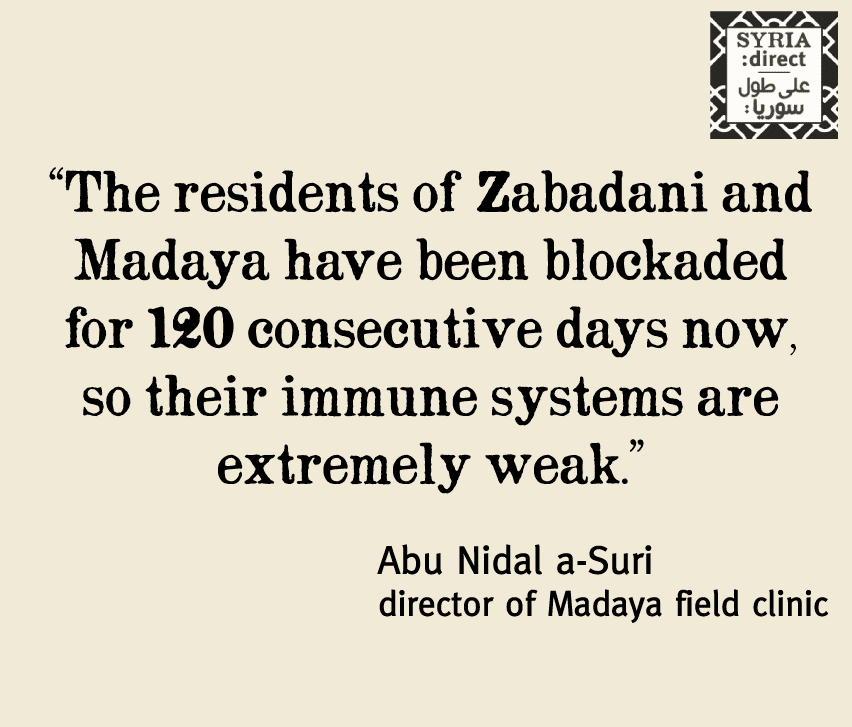Aid delivers food poisoning as residents’ immunity ‘extremely weak’
The UN confirmed that 320 of the 650 crates of […]
26 October 2015
The UN confirmed that 320 of the 650 crates of aid sent to the besieged, rebel-held cities of Zabadani and Madaya in Outer Damascus on October 18 contained expired high-energy biscuits. UN Resident and Humanitarian Coordinator in Syria Yacoub El Hillo acknowledged in a statement over the weekend that “this was a result of an unfortunate human error during the loading process.”
The expired biscuits were part of aid agreed to in the UN-brokered six-month ceasefire between the Victory Amy coalition in Idlib, who were besieging the two Shiite-majority villages of al-Fuaa and Kafariya, and an Iranian delegation negotiating on behalf of the regime forces that were blockading the rebel-held Outer Damascus towns of Zabadani and Madaya.
Up to 200 Syrians, mostly children, got food poisoning from the expired biscuits in Zabadani, Abu Nidal a-Suri, the director of the only field clinic in the town, considered the gateway into the Qalamoun mountains, tells Syria Direct’s Ghalia Mukhalalati. Residents’ immune systems are “extremely weak” after 120 consecutive days of the regime siege, the doctor says.
Q: How did you first realize that expired food delivered by the UN caused the food poisoning?
After the biscuits were consumed, cases of diarrhea and vomiting started to appear and after these cases multiplied, it caught the attention of the medical team. We discovered that [the biscuits] were expired. The rest of them were thrown out.
Q: Food like bread and biscuits don’t generally cause food poisoning to this extent. What caused the food poisoning?
The residents of Zabadani and Madaya have been blockaded for 120 consecutive days now, so their immune systems are extremely weak. After eating the bad biscuits, they were affected immediately, resulting in cases of poisoning, vomiting, and intestinal swelling.
Q: How many people got sick in Zabadani and what was their condition like?
The biscuits poisoned up to 200 people, causing severe diarrhea and vomiting. Some of them were women, but the majority were children since the women’s immune systems are stronger than the children’s. As of now, they have been treated despite the lack of medicine.
Q: Who is responsible for these expired food items?
In my opinion, this was intentional given the aid was from the UN’s storehouses. As the clinic director, I talked with a member of the UN and he mentioned to me that there are UN storehouses where expired aid is kept. When the last aid order that was sent [containing the expired biscuits] was filled, there was a shortage of aid. The Red Crescent, who was filling the order, took some of the expired goods to complete it.
Q: How have the residents responded?
The residents are resentful and displeased and think the UN and the Red Crescent are conspiring against them by sending them expired food stuffs that poisoned their children, considering no spoiled food was sent to Kafariya and al-Fuaa.
Q: How is the UN planning on compensating residents?
After we talked to the UN, they committed to sending aid to replace the expired food as well as powdered milk for the children.
Q: What future steps will you take to avoid food poisoning from expired aid?
The Local Coordination Council (LCC) will examine all aid that is delivered in the future from any party.







